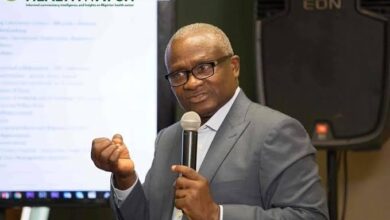1 in 3 Nigerians Die From Non-Communicable Diseases -WHO

The World Health Organisation (WHO) has disclosed that 1 in every 3 Nigerians die from a form of Non-Communicable Diseases (NCDs).
WHO Nigeria Country Representative, Dr. Walter Kazadi Mulombo made the disclosure on Tuesday, October 26, 2021 in his goodwill message at the opening ceremony of the International Cancer Week in Abuja.
TheFact Nigeria gathered that the average Nigerian does not go for routine medical checkup hence making early detection of NCDs impossible. This in turn lead to deaths which would have been avoided.
Non-communicable diseases are diseases that are not transmissible directly from one person to another. Examples include Osteoarthritis, most Cancers, Osteoporosis, Parkinson’s disease, Strokes, some heart diseases, Diabetes, chronic kidney disease, Cataracts, among others
Dr. Kazadi noted that Non-communicable Diseases were fast outpacing communicable diseases and hence called for a investment in prevention.
He said: “Current data estimates that 1 out of every 3 Nigerian is dying from a form of NCDs.
“Thus, the need exists for more strategic investment in cancer prevention and care, to avoid further catastrophic financial hardship on the populace.
“We appreciate the efforts of the Federal Ministry of Health and partners for ensuring this yearly event continued and have made it a platform for national dialogue and further advocacy to different stakeholders”, he said.
Speaking on the disturbing statistics, the WHO Country Representative further said: “Cancer is the second (after cardiovascular diseases) leading cause of death worldwide, accounting for nearly 10 million deaths in 2020.
“Breast cancer is the commonest cancer in women and Prostrate cancer in Men. In 2020, there were 2.3 million women diagnosed with breast cancer and 685 000 deaths globally.
“Here in Nigeria, breast cancer is also the commonest cancer followed by cervical cancer in women with estimated 26 per 100,000 population new cases occurring every year”, he said.
Dr. Kazadi disclosed that the National Primary Health Care Development Agency (NPHCDA) was working on nationwide introduction of HPV vaccine for adolescent girls as part of Cervical cancer elimination agenda. This he said was commendable but emphasised that there was need to do more to reach the desired goal.
He highlighted the opportunities that exist in the fight against cancer in Nigeria to include:
•Health laws, regulations, policies and strategic plans on NCDs and their risk factors; addition of NCDs in the Basic Health Provision Fund, National Health Insurance Scheme, and State Social Health Insurance Programmes.
• Strong leadership and coordination by Government at national and state levels; and involvement of First Ladies in promoting awareness, screening and treatment of Cancers.
• The current drive of Government to revitalize PHCs which can be used to scale up screening and treatment of NCDs including breast and cervical cancer.
• Government focus on the implementation of new advances in NCDs and cancer.
He disclosed that WHO was providing technical assistance to the Government of Nigeria in strengthening the prevention and control of NCDs including cancer in the country.
He said:
“Our support is in evidence generation and use for the development of key policies, strategic plans, guidelines and SOPs; supporting advocacies and coordination; capacity building of health workers and their facilities to deliver NCDs services in key states;
“Currently, WHO is working with first ladies of Niger, Kebbi and Ondo state in collaboration with Clinton Health Access Initiative (CHAI) on cervical cancer screening, this is part of WHO’s effort to ensure Nigeria joins the rest of the world on the WHO Global cervical cancer elimination agenda.
“WHO is also supporting Federal Ministry of Health to conduct a national Survey on the prevalence and risk factors of NCDs (NCD STEPS Survey) and prevalence of tobacco use. This survey will give latest data on NCDs and their risk factors for evidence-based interventions to curb the modifiable risk factors of cancers”, the WHO Country Representative explained.
He further reiterated WHO’s unwavering committement to support the Government of Nigeria and collaborate with all stakeholders to raise awareness, screen and treat cancers in the country.
The theme of this year’s International Cancer week is “Cancer care for all: through strategic advocacy and investment”.






